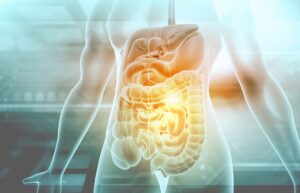 You may have heard of the gut-brain axis and how the microbial makeup in your gut can influence thinking and energy.
You may have heard of the gut-brain axis and how the microbial makeup in your gut can influence thinking and energy.
But have you ever heard of the gut-heart axis?
Advertisement
There has been plenty of research in the past decade or so about how gut health may impact overall health. That data shows that a healthy microbiome – the population of microbes/bacteria residing in your gut, reaches much further than digestion.
Some research suggests that there may be a link between gut health and heart health, but that it travels in one direction: from the gut to the heart. Keeping your gut healthy may be another tool to help protect against heart disease.
Diet plays an important role in the microbiome’s composition, and what you feed it can impact heart health – for better or worse.
One way the gut can impact the heart is through metabolites, which are substances created when food is broken down. One metabolite, trimethylamine (TMA), forms when microbes feed on choline, a nutrient found in red meat and other animal proteins.
TMA gets converted to trimethylamine N-oxide (TMAO) in the liver, which is a substance that is closely linked with artery-clogging plaque.
Research shows that people with high levels of TMAO in their blood are more likely to suffer a heart attack or stroke than those with lower levels.
Advertisement
On the other hand, the gut can help the heart when it’s fed fiber. Fiber helps support the growth of healthy gut bacteria and helps the heart. Some estimates suggest that a fiber-rich diet can help lower the risk of heart disease and stroke by up to 30 percent.
Fiber in the small intestine binds to fat and cholesterol, decreasing absorption and lowering blood cholesterol levels.
Gut microbiota breaks down fiber to create short-chain fatty acids, which interact with certain receptors in cells that regulate blood pressure, blood sugar, inflammation, and more, which all help to improve heart health.
